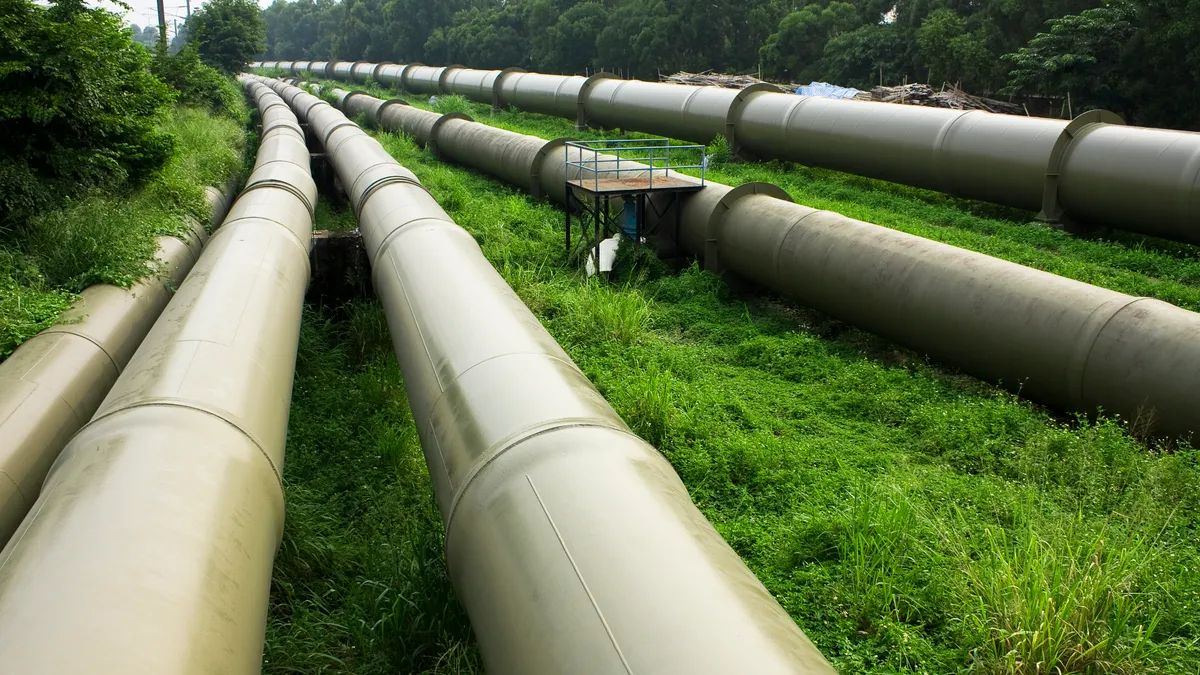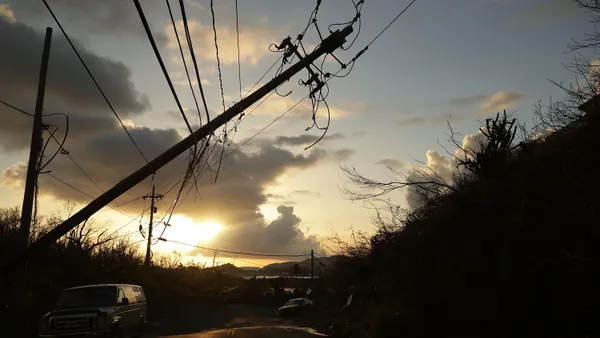Dive Brief:
-
A federal judge has denied requests by the Standing Rock and Cheyenne River Sioux tribes to rescind permission granted to Texas developer Energy Transfer Partners to build the final phase of the nearly $4 billion Dakota Access pipeline project, according to The Associated Press. Officials said oil could start running next week, with the pipeline completely operational in as little as three weeks.
-
U.S. District Judge James Boasberg rejected arguments that the pipeline's path beneath a nearby lake would prevent the tribes from practicing their religion, which requires clean water for certain ceremonies. The tribes cited the disruption of a cultural site in a lawsuit filed last summer, but they did not introduce the religious freedom issue until recently.
-
The two tribes are unlikely to scale back their response to the project. The pair drew the world's attention with the size of their on-site protests in North Dakota. Tribe members and other supporters are now gathered in Washington, DC, to conduct a four-day demonstration against President Donald Trump's pipeline policies.
Dive Insight:
Stalled by legal challenges, the pipeline's construction was resuscitated after Trump penned a memorandum directing the secretary of the Army to quickly "review and approve" the pipeline's ability to cross a waterway. At the same time, Trump issued another official memo encouraging developers of the Keystone XL pipeline from Alberta, Canada, to Nebraska to resubmit their application, which had been denied under the Obama administration.
Despite concerns about safety and potential environmental damage, pipeline advocates point to a rigorous application and review process in defense of those projects. Technology, said Mark Pyatt, global lead of oil and gas operational integrity at international software company SAP, has also been a boon for safety during and after construction.
Drones, he told Construction Dive last month, help to monitor construction operations and keep tabs on pipeline integrity, particularly in remote stretches. He added that sensors, which are tied into pipeline operations and maintenance systems, immediately send an alert if they detect a leak or an irregularity in oil or gas flow during or after construction is complete.
Construction industry groups cite the potential for job creation as one outcome of keeping pipeline construction going. "[Trump's] executive order regarding the Keystone and Dakota Access pipelines hopefully foreshadows his broader efforts to rebuild our country," Brian Turmail, senior executive director of public affairs for the Associated General Contractors of America, told Construction Dive.











